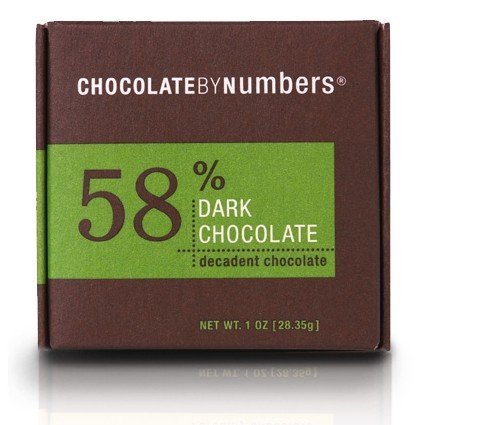Only 58% of protein can be converted to energy
Replies
-
I nearly fell off my chair laughing...because lowcarber and carbsmart and marksdailyapple and yahoo are totally the greatest combination of references ever. You should totally write a thesis.No idea where you got this from.
Thermogenics of food conversion requires up to 30% for protein, 15% for carboydrates and only 2% for fat, which is why fat is stored so easily in the body when consumed to excess.
Eating 100g of protein will at minimum utilse 70% of what you've just eaten not 42%.
Protein alone will not prevent muscle loss, nitrogen and a few useful amino acids play the part as well as carbohydrates and glycogen.
I see you are the person on the cereal diet, I don't think protein thermogenics should be a concern for you at the moment considering what you're eating, you are not getting the correct nutrients, unless your post about the cereal diet is inaccurate.
These are some sources:
http://forum.lowcarber.org/showthread.php?t=390955
http://www.carbsmart.com/howmuchprotein.html
http://www.marksdailyapple.com/forum/thread10956.html
http://answers.yahoo.com/question/index?qid=20100407003822AAZO2rx
Read these
http://www.proteinpower.com/drmike/metabolism/overfeeding-and-metabolic-advantage/
http://www.nutritionandmetabolism.com/content/1/1/15
http://en.wikipedia.org/wiki/Metabolic_advantage
Again with the laughing. random protein powder sites? a link about some study that is incredibly long so I only read the conclusion which wasn't helpful (feel free to site the part that says you only use 58% at all times), and some Wikipedia words that are not cited. Anyway, nowhere does it say in any of those articles that everyones body can only convert 58% of protein to energy...I could randomly spit out facts too. Everyone uses 2% of their brain. It's true! Because some people use at least 2%, and at the point you die there will be some instance where only 2% is being used.
On that note Thermogenesis dealing with DIT and TEF is pretty N.E.A.T. hey?0 -
I'm gonna snooze through this one....0
-
Your diet consists of four bowls of cheerios, a tiny piece of chicken and mutlivitamins.....:sad: Please do not expect people to take you seriously?:bigsmile: :laugh: :noway:0
-
I nearly fell off my chair laughing...because lowcarber and carbsmart and marksdailyapple and yahoo are totally the greatest combination of references ever. You should totally write a thesis.No idea where you got this from.
Thermogenics of food conversion requires up to 30% for protein, 15% for carboydrates and only 2% for fat, which is why fat is stored so easily in the body when consumed to excess.
Eating 100g of protein will at minimum utilse 70% of what you've just eaten not 42%.
Protein alone will not prevent muscle loss, nitrogen and a few useful amino acids play the part as well as carbohydrates and glycogen.
I see you are the person on the cereal diet, I don't think protein thermogenics should be a concern for you at the moment considering what you're eating, you are not getting the correct nutrients, unless your post about the cereal diet is inaccurate.
These are some sources:
http://forum.lowcarber.org/showthread.php?t=390955
http://www.carbsmart.com/howmuchprotein.html
http://www.marksdailyapple.com/forum/thread10956.html
http://answers.yahoo.com/question/index?qid=20100407003822AAZO2rx
Read these
http://www.proteinpower.com/drmike/metabolism/overfeeding-and-metabolic-advantage/
http://www.nutritionandmetabolism.com/content/1/1/15
http://en.wikipedia.org/wiki/Metabolic_advantage
Again with the laughing. random protein powder sites? a link about some study that is incredibly long so I only read the conclusion which wasn't helpful (feel free to site the part that says you only use 58% at all times), and some Wikipedia words that are not cited. Anyway, nowhere does it say in any of those articles that everyones body can only convert 58% of protein to energy...I could randomly spit out facts too. Everyone uses 2% of their brain. It's true! Because some people use at least 2%, and at the point you die there will be some instance where only 2% is being used.
On that note Thermogenesis dealing with DIT and TEF is pretty N.E.A.T. hey?
"One hundred grams of an "average" protein can supply about 57 grams of glucose so 110 grams protein would be needed to provide 60–65 grams glucose."
source:http://www.nutritionandmetabolism.com/content/1/1/15
Authors: Eugene J Fine and Richard D Feinman- SUNY Downstate Medical Center
Or you can just continue to believe a calorie is just a calorie.0 -
I nearly fell off my chair laughing...because lowcarber and carbsmart and marksdailyapple and yahoo are totally the greatest combination of references ever. You should totally write a thesis.No idea where you got this from.
Thermogenics of food conversion requires up to 30% for protein, 15% for carboydrates and only 2% for fat, which is why fat is stored so easily in the body when consumed to excess.
Eating 100g of protein will at minimum utilse 70% of what you've just eaten not 42%.
Protein alone will not prevent muscle loss, nitrogen and a few useful amino acids play the part as well as carbohydrates and glycogen.
I see you are the person on the cereal diet, I don't think protein thermogenics should be a concern for you at the moment considering what you're eating, you are not getting the correct nutrients, unless your post about the cereal diet is inaccurate.
These are some sources:
http://forum.lowcarber.org/showthread.php?t=390955
http://www.carbsmart.com/howmuchprotein.html
http://www.marksdailyapple.com/forum/thread10956.html
http://answers.yahoo.com/question/index?qid=20100407003822AAZO2rx
Read these
http://www.proteinpower.com/drmike/metabolism/overfeeding-and-metabolic-advantage/
http://www.nutritionandmetabolism.com/content/1/1/15
http://en.wikipedia.org/wiki/Metabolic_advantage
Again with the laughing. random protein powder sites? a link about some study that is incredibly long so I only read the conclusion which wasn't helpful (feel free to site the part that says you only use 58% at all times), and some Wikipedia words that are not cited. Anyway, nowhere does it say in any of those articles that everyones body can only convert 58% of protein to energy...I could randomly spit out facts too. Everyone uses 2% of their brain. It's true! Because some people use at least 2%, and at the point you die there will be some instance where only 2% is being used.
On that note Thermogenesis dealing with DIT and TEF is pretty N.E.A.T. hey?
"One hundred grams of an "average" protein can supply about 57 grams of glucose so 110 grams protein would be needed to provide 60–65 grams glucose."
source:http://www.nutritionandmetabolism.com/content/1/1/15
Author Eugene J Fine SUNY Downstate Medical Center
Or you can just continue to believe a calorie is just a calorie.
If I'm not mistaken you're just talking about the amount of protein that can be coverted to glucose via gluconeogenesis.
If you're using protein as a primary fuel source you're going to be consuming very high amounts of protein because by default, you're consuming too few carbs to fuel energy.
In other words, if you're consuming adequate carbohydrate, you're not going to be using protein as an energy source at least not in any massive quantity. If you're not consuming adequate carbohydrate, you will likely convert some protein to glucose for energy needs, but you're also going to be eating much more protein.
Is there a practical application to what you're trying to present? (Trying to understand the point of this post).
Lastly, a calorie is a calorie when it goes into your mouth. Your body does different things with each macronutrient depending on need. This doesn't change the value of a calorie.
EDIT: And I'm relatively certain that this is where the concept of the phrase "Carbs are protein sparing" comes from. Adding carbs MAY prevent additional use of protein as an energy source which allows more protein to be used for skeletal muscle/non-energy needs.0 -
Wikipedia! That's it, threads over. It's been proven.0 -
Can I get a 42% refund from the makers of my Protein Shakes?0
-
If this is true, how much protein should I be eating?
I weigh around 120 kg.
Calculators say I should eat around 180 grams of protein. BUt when I weigh 90 and 60 kg later on, will I still be eating 180 grams of protein?
I find it hard to eat that much protein.0 -
...can you cite some valid research before I jump the gun and wet my pants?I would like to share a fact on protein for everyone's benefit and that is that you should include large amounts of protein in your diet. Why? well it is actually very simple first of all protein helps prevent muscle loss but secondly only 58% of protein can be used for energy when metabolized by the body. In other words if you hypothetically consumed 2500 calories of lean chicken breast you would actually only be consuming 1450 calories of usable energy. If you want to get thin eat lots of protein.
And will all this protein mess up my cereal diet?:laugh: :laugh: :laugh:0 -
If you do not believe me look at anyone who has successfully completed the dukan diet. Regardless this was just information to assist people it does not relate to my plan in partucular
Links to sources, please. "Looking" at someone proves nothing. While I can appreciate you trying to help others, it's not useful if you don't show me the science.0 -
Why do I bulk up when I drink protein shakes? I don't even lift heavy. When I drink protein shakes and do Tae Bo, my legs and arms get all swole!0
-
Why do I bulk up when I drink protein shakes? I don't even lift heavy. When I drink protein shakes and do Tae Bo, my legs and arms get all swole!
This is because protein instantly turns to muscle and everyone who eats excess will look like the hulk.0 -
"One hundred grams of an "average" protein can supply about 57 grams of glucose so 110 grams protein would be needed to provide 60–65 grams glucose."
source:http://www.nutritionandmetabolism.com/content/1/1/15
Authors: Eugene J Fine and Richard D Feinman- SUNY Downstate Medical Center
This is an abstract study done at a Medical University. If you choose not to believe it then you don't have to.0 -
OP this is ridiculous and you are 150% incorrect.
I suggest you read The Protein Book by Lyle McDonald.
I'm actually restraining myself from getting a 3rd strike right now because your post is ludicrous and inaccurate.0 -
I would like to share a fact on protein for everyone's benefit and that is that you should include large amounts of protein in your diet. Why? well it is actually very simple first of all protein helps prevent muscle loss but secondly only 58% of protein can be used for energy when metabolized by the body. In other words if you hypothetically consumed 2500 calories of lean chicken breast you would actually only be consuming 1450 calories of usable energy. If you want to get thin eat lots of protein.
Thus spake the self appointed super guru.............................. GTFO0 -
The *kitten*?
I think this is a clear case of "I read something, I don't exactly understand it, but I'm going to regurgitate it."
Normally I would gladly jump on this and tear it apart but the intent and principle is correct "eat more protein if you want to lose fat". Now I'll keep this simple as to the why's, and source everything:
-It helps you lose fat.
(see: http://www.ncbi.nlm.nih.gov/pubmed/19179060 and http://www.ncbi.nlm.nih.gov/pubmed/18469287)
-It helps you build muscle.
(see: http://www.ncbi.nlm.nih.gov/pubmed/19150856)
-It fills you up so you’re less hungry, moreso than pretty much anything else you could eat.
(see: http://www.ncbi.nlm.nih.gov/pubmed/14557793 and http://www.ncbi.nlm.nih.gov/pubmed/18469287)
-It supports lean body mass (muscle) over flabby and unhealthy body mass (fat), making you lose more fat and less muscle on a caloric deficit.
(see: http://www.ncbi.nlm.nih.gov/pubmed/19927027 and http://www.ncbi.nlm.nih.gov/pubmed/15640518)
Now, this is all documented in a much larger document that I occasionally (read: allthef*ckingtime) post on various thread and insist people read. http://4chanfit.wikia.com/wiki/Harsh's_Worksheet_(WIP)
Thank you:drinker:0 -
So, I should only eat the marshmallows in my lucky charms?
NINJAEDIT: Oh wait. I get it. Since I can only eat half the cereal, I choose marshmallows. What about Capn' Crunch Oops berries?
*researches into a diabetic coma*0 -
i think NO.0
-
This thread needs more chocolate. I'm 58% sure of it.
 0
0 -
 0
0 -
Sticking to cereal will get you 58% converted into blob. I seriously don't know where these ideas come from LOL0
-
Ummm. this sounds like one of those new health craze things... your body doesn't use a lot of protein as energy because that isn't body's main energy source - carbs are. Doesn't everyone know this by now??? ugh... ::Facepalm::0
-
 0
0 -
Some of you people are so naive. I just cited an abstract study done at a medical school. Believe what you want but go ask a biochemist if you feel you are so correct.0
-
I nearly fell off my chair laughing...because lowcarber and carbsmart and marksdailyapple and yahoo are totally the greatest combination of references ever. You should totally write a thesis.No idea where you got this from.
Thermogenics of food conversion requires up to 30% for protein, 15% for carboydrates and only 2% for fat, which is why fat is stored so easily in the body when consumed to excess.
Eating 100g of protein will at minimum utilse 70% of what you've just eaten not 42%.
Protein alone will not prevent muscle loss, nitrogen and a few useful amino acids play the part as well as carbohydrates and glycogen.
I see you are the person on the cereal diet, I don't think protein thermogenics should be a concern for you at the moment considering what you're eating, you are not getting the correct nutrients, unless your post about the cereal diet is inaccurate.
These are some sources:
http://forum.lowcarber.org/showthread.php?t=390955
http://www.carbsmart.com/howmuchprotein.html
http://www.marksdailyapple.com/forum/thread10956.html
http://answers.yahoo.com/question/index?qid=20100407003822AAZO2rx
Read these
http://www.proteinpower.com/drmike/metabolism/overfeeding-and-metabolic-advantage/
http://www.nutritionandmetabolism.com/content/1/1/15
http://en.wikipedia.org/wiki/Metabolic_advantage
Again with the laughing. random protein powder sites? a link about some study that is incredibly long so I only read the conclusion which wasn't helpful (feel free to site the part that says you only use 58% at all times), and some Wikipedia words that are not cited. Anyway, nowhere does it say in any of those articles that everyones body can only convert 58% of protein to energy...I could randomly spit out facts too. Everyone uses 2% of their brain. It's true! Because some people use at least 2%, and at the point you die there will be some instance where only 2% is being used.
On that note Thermogenesis dealing with DIT and TEF is pretty N.E.A.T. hey?
"One hundred grams of an "average" protein can supply about 57 grams of glucose so 110 grams protein would be needed to provide 60–65 grams glucose."
source:http://www.nutritionandmetabolism.com/content/1/1/15
Author Eugene J Fine SUNY Downstate Medical Center
Or you can just continue to believe a calorie is just a calorie.
If I'm not mistaken you're just talking about the amount of protein that can be coverted to glucose via gluconeogenesis.
If you're using protein as a primary fuel source you're going to be consuming very high amounts of protein because by default, you're consuming too few carbs to fuel energy.
In other words, if you're consuming adequate carbohydrate, you're not going to be using protein as an energy source at least not in any massive quantity. If you're not consuming adequate carbohydrate, you will likely convert some protein to glucose for energy needs, but you're also going to be eating much more protein.
Is there a practical application to what you're trying to present? (Trying to understand the point of this post).
Lastly, a calorie is a calorie when it goes into your mouth. Your body does different things with each macronutrient depending on need. This doesn't change the value of a calorie.
EDIT: And I'm relatively certain that this is where the concept of the phrase "Carbs are protein sparing" comes from. Adding carbs MAY prevent additional use of protein as an energy source which allows more protein to be used for skeletal muscle/non-energy needs.
FTW!! :drinker:0 -
Some of you people are so naive. I just cited an abstract study done at a medical school. Believe what you want but go ask a biochemist if you feel you are so correct.
You obviously didn't ask one before posting this and feel you are correct, so why should we?
You can believe what you want and we can believe what we want. However, it is important for someone to mention other information and not just agree with what you threw out there from some Google searches.0 -
Some of you people are so naive. I just cited an abstract study done at a medical school. Believe what you want but go ask a biochemist if you feel you are so correct.
So, tell me, what exactly happens to the remaining 42%? Enquiring minds want to know!0 -
 0
0 -
Some of you people are so naive. I just cited an abstract study done at a medical school. Believe what you want but go ask a biochemist if you feel you are so correct.
So, tell me, what exactly happens to the remaining 42%? Enquiring minds want to know!
The energy is lost in the conversion from protein to glucose. The body either uses the protein to build amino acids but this is a relatively small amount. Anything more than that it converts to glucose for energy. Protein is the only macronutrient with a nitrogen bond and when the liver breaks down the protein the energy is lost in the conversion process. After that the protein is now blood sugar and either gets burned off as a carbohydrate or the carbohydrates get converted into fat tissue.0 -
Some of you people are so naive. I just cited an abstract study done at a medical school. Believe what you want but go ask a biochemist if you feel you are so correct.
So, tell me, what exactly happens to the remaining 42%? Enquiring minds want to know!
The energy is lost in the conversion from protein to glucose. The body either uses the protein to build amino acids but this is a relatively small amount. Anything more than that it converts to glucose for energy. Protein is the only macronutrient with a nitrogen bond and when the liver breaks down the protein the energy is lost in the conversion process. After that the protein is now blood sugar and either gets burned off as a carbohydrate or the carbohydrates get converted into fat tissue.
I have no idea what I'm talking about as I learned NOTHING about blood sugar from nursing school or working at a vets office with diabetics but last I knew diabetics didn't get a blood sugar spike with excesses protein intake. Damn all those dogs, cats, and people who weren't doing as they should and making their BS spike with their high protein diets.0
This discussion has been closed.
Categories
- All Categories
- 1.4M Health, Wellness and Goals
- 398.5K Introduce Yourself
- 44.7K Getting Started
- 261K Health and Weight Loss
- 176.4K Food and Nutrition
- 47.7K Recipes
- 233K Fitness and Exercise
- 462 Sleep, Mindfulness and Overall Wellness
- 6.5K Goal: Maintaining Weight
- 8.7K Goal: Gaining Weight and Body Building
- 153.5K Motivation and Support
- 8.4K Challenges
- 1.4K Debate Club
- 96.5K Chit-Chat
- 2.6K Fun and Games
- 4.8K MyFitnessPal Information
- 18 News and Announcements
- 21 MyFitnessPal Academy
- 1.5K Feature Suggestions and Ideas
- 3.2K MyFitnessPal Tech Support Questions

















